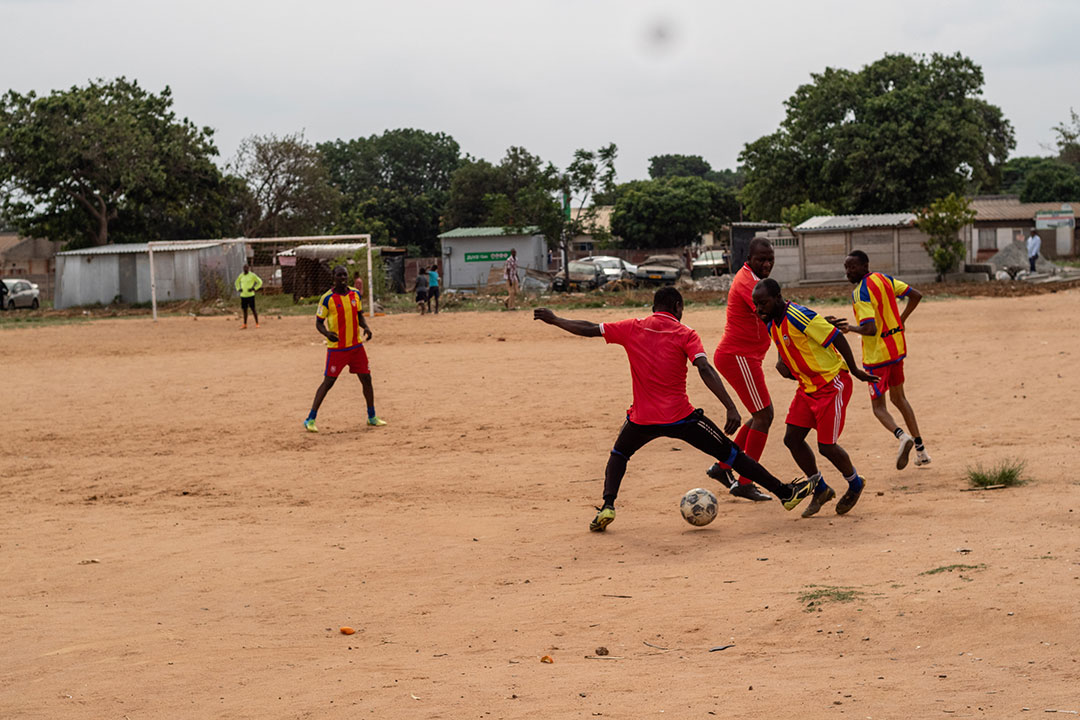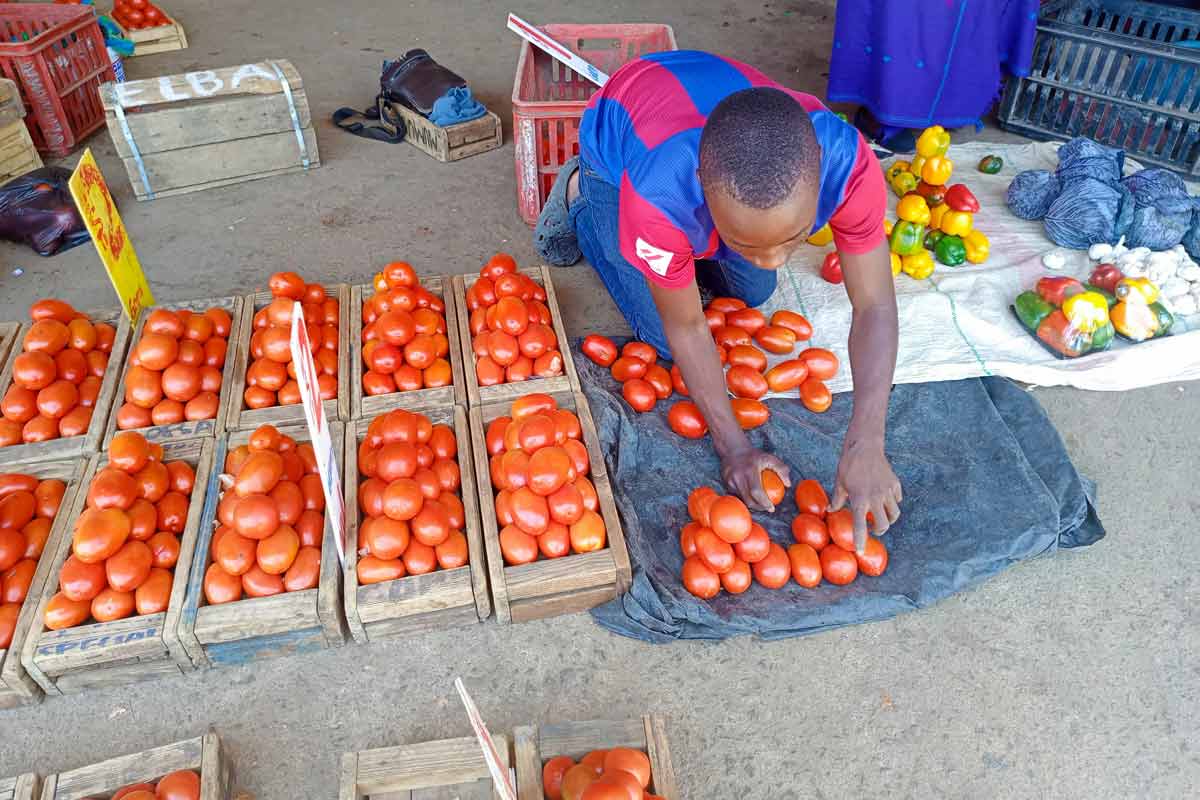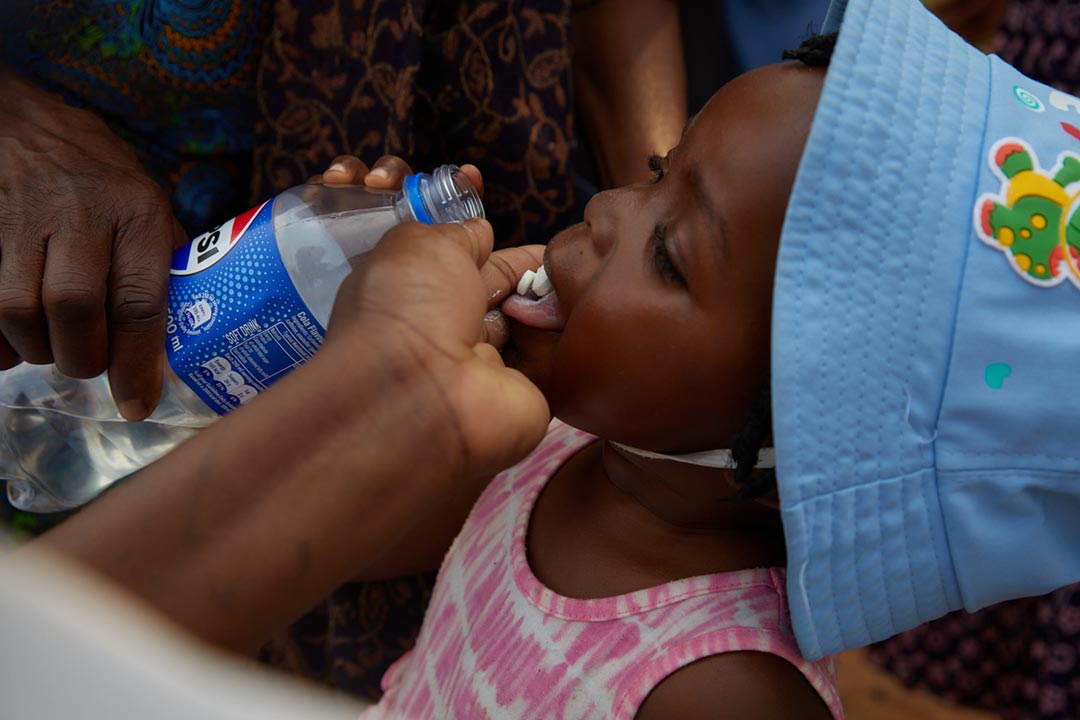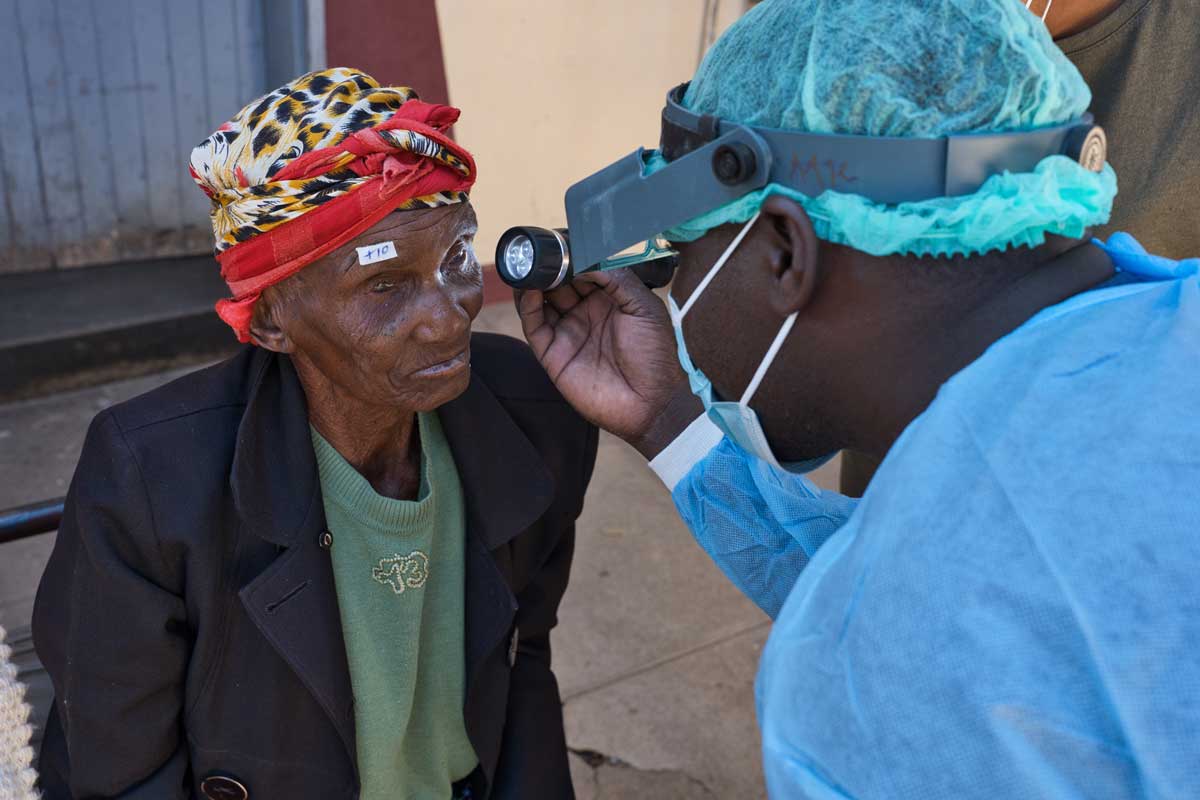"The boys are back in town": Sports and entertainment return in Zimbabwe
There is a glimmer of hope for Zimbabwe’s sports and entertainment.
- 8 December 2021
- 4 min read
- by Derick Matsengarwodzi

On a large, open field, rising red earth forms a barricade. Inside the cloud, a football battle rages, with soccer players engaged in a seesaw tussle for possession. In a moment, a long searching ball is pumped forward, and a hot pursuit ensues.
Upfront, a burly striker calms the ball, evading one defender and then a second. As he surges forward, deafening chants of “goal, goal, goal” urge him on, as he comes face to face with the anxious goalie. He almost casually slots the ball home.
“As a club, we are 100% vaccinated and we are happy about that. The disease is here to stay, and as sports people, we are influencers so it is important that we encourage our fans to get vaccinated.”
The goal, a real gem according to the loyal and knowledgeable local soccer fans, ignites wild celebrations, with the fans invading the pitch, shouting, “The boys are back in town!”
After a two-year absence during which COVID-19 wreaked havoc on the country, killing 4,699 people so far, soccer, aptly described as the beautiful game, is finally back.
At a professional level, Caps United FC was one of the biggest victims of the pandemic-induced lockdowns, as Raymond Gonte, the club’s head of commercial and media, explains, “During the lockdowns, as the number of infections increased, we were unable to play our primary role as a club, which is to train, play football and entertain fans. We were one of the most affected industries and because football is a contact sport, we were the last in line when it has come to restarting.”
Since 2020, the onslaught of the pandemic caught the sporting industry off guard. In total, 24,500 people employed by the domestic football industry were affected by the pandemic, according to the Zimbabwe Football Association (ZIFA).
“COVID-19 was a totally new thing for the whole sports industry and there was nothing we could do because the lockdown was a directive at government level,” Gonte adds.
The pandemic also devastated the entertainment industry, says Passmore Ndlovu, the programmes manager at Rooftop Promotions, an arts production house.
Have you read?
“We were greatly affected by the lockdown restrictions because we could not travel to film.” Globally, theatrical revenue dropped from $42.3 billion in 2019 to $12 billion in 2020, Zimbabwe included.
To keep earning during the pandemic, the production house had to become innovative.
“Using Theatre in the Park, our performance venue and a funding mechanism for our organisation, we shifted to digital, distributing our productions via our social media digital platforms and national television,” Ndlovu says.
“We also purchased live-streaming equipment and hired it out to artists for virtual live performances and we earned from our equipment.”
But, with limited internet penetration and the high cost of data in the country, Theatre in the Park’s reach was limited. After the disruption, the sporting and entertainment fraternity are slowly crawling back into action.
Caps United stayed busy with player transfers and partnership agreements. And with a reprieve for the sports and entertainment industries, Gonte says, “Everyone in the soccer fraternity was happy when the lockdown was lifted, and we hope it will last longer. We kickstarted in May, and we secured three sponsorship deals, so we are happy that the sponsors still believe in football as a marketing platform.”
Gonte adds, “As a club, we are 100% vaccinated and we are happy about that. The disease is here to stay, and as sports people, we are influencers, so it is important that we encourage our fans to get vaccinated. We don’t want to go back to where we were in 2020, not knowing when football would be played again, trying to keep the players fit during the lockdown and the loss of revenue from gate takings, which is our main revenue source. For us, football is not football without the fans.”
With the lockdown now relaxed, Ndlovu says that the arts sector is still wary. “While we are happy that the lockdown was lifted, we are just not sure what will happen. The government could announce another lockdown any time. We constantly urge the public to follow all the COVID-19 regulations and get vaccinated.”
Hopefully, with more citizens getting vaccinated, sports and entertainment are back for good.









